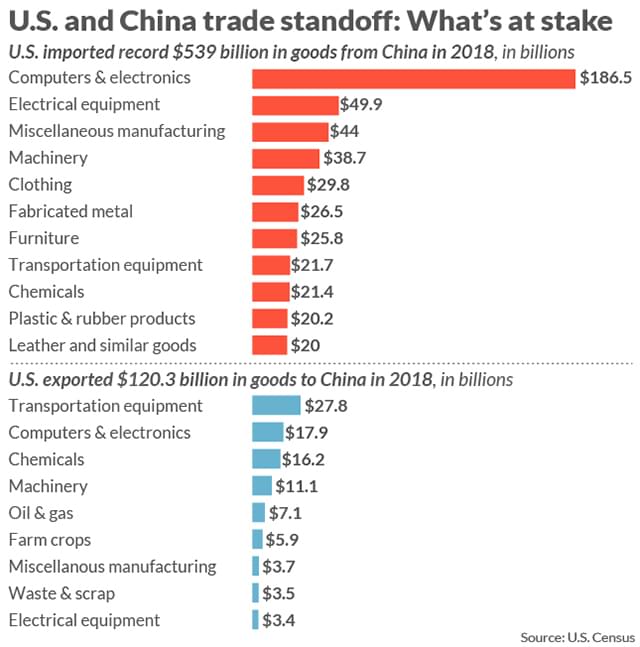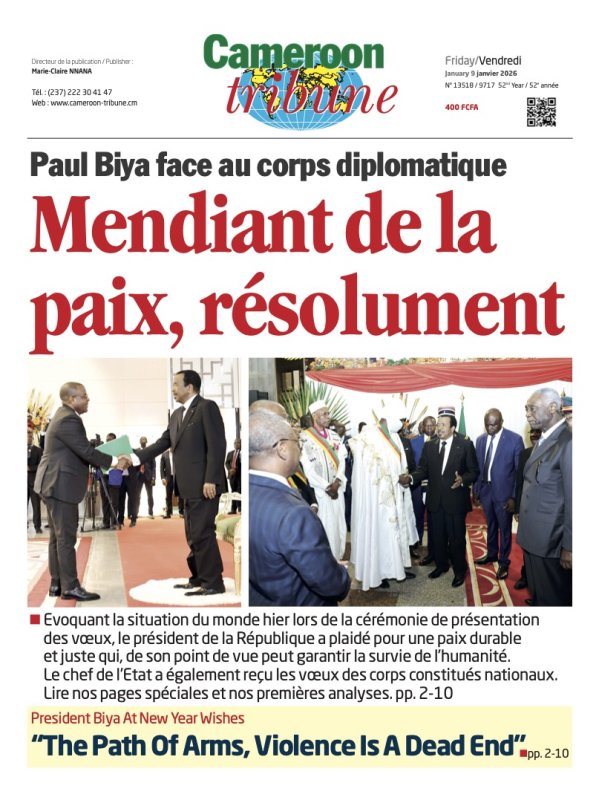America-China Trade War : Revisiting The Causes Of A Simmering Conflict
- Par Kimeng Hilton
- 27 May 2019 12:05
- 0 Likes

Protecting the economy was one of US President Donald Trump’s campaign promises in 2016, and he has been doing just this since 2018.
Donald Trump won the 2016 United States of America presidential election on the promise to make trade fairer for his country. So far, his efforts have seen him fighting some of America’s oldest trade partners. Since 2018, the US has been embroiled in tit-for-tat trade battles on several fronts, but the one creating the most interest is the conflict with China, the world’s second largest economy after the US.
Trump believes that imposing higher tariffs on Chinese imports will reduce America’s 500-billion-dollar trade deficit with Beijing – which is over 2 per cent of America’s Gross Domestic Product. The wrangling by the world’s two largest economies for global influence saw China accusing the US in 2018 of launching the “largest trade war in economic history.” This was after the US in 2018 imposed three rounds of tariffs on Chinese products totalling 250 billion dollars’ worth of goods.
After months of hostilities, both countries agreed to halt new trade tariffs till December 2018 to allow room for talks. Optimism grew over prospects for a deal, but soon faded. The latest round of US-Chinese trade negotiations ended in Washington on May 10, 2019 without a deal. Sequel to this, the US more than doubled tariffs on 200 billion dollars’ worth of Chinese products. China on May 13, 2019 said it will impose tariffs on 60 billion dollars of US goods beginning on June 1, 2019. Beijing said it would not swallow any “bitter fruit” that harmed its interests. China has since raised tariffs on more than 5,000 US products, with the new rates ranging from 5 per cent to 25 per cent.
Trump says he wants to protect jobs and stop “unfair transfers of American technology and intellectual property to China.” The US argues that China’s trade surplus is the result of unfair practices, including state support for domestic companies. It also accuses China of stealing intellectual property from US firms. In theory, tariffs should make US-made products cheaper than imported ones, and so encour...
Cet article complet est réservé aux abonnés
Déjà abonné ? Identifiez-vous >
Accédez en illimité à Cameroon Tribune Digital à partir de 26250 FCFA
Je M'abonne1 minute suffit pour vous abonner à Cameroon Tribune Digital !
- Votre numéro spécial cameroon-tribune en version numérique
- Des encarts
- Des appels d'offres exclusives
- D'avant-première (accès 24h avant la publication)
- Des éditions consultables sur tous supports (smartphone, tablettes, PC)














Commentaires